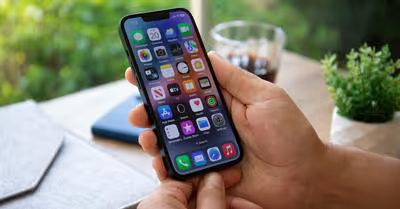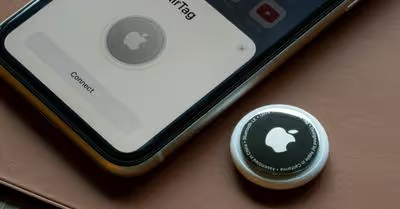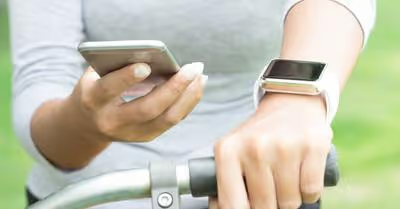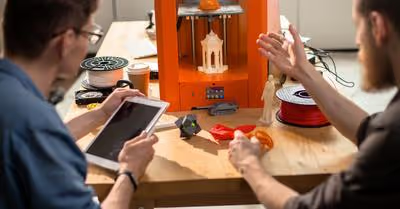Table of Contents
What Is Apple Pay?
Apple Pay is a payment method by Apple that allows users to make contactless payments. They can transfer, send, and receive funds through an online platform. Many consider it to be similar to PayPal, but you need an Apple ID to avail of the services.
The whole idea behind Apple Pay is to make users wallet-free. This means that you can move your debit and credit cards to your smart devices such as Apple Watch, iPhone, or even iPad and Mac. You can make payments using your device for anything you are planning to purchase.
Apple Pay itself does not carry out transactions. It is only a wallet for storing data that allows you to store your card information, and make it convenient for you to make payments with different merchants as you need.
So, overall Apple Pay is a method to store and use your card data, and has nothing to do with money on its own.
Many users believe that Apple Pay is far more secure than traditional credit or debit cards because it adds the credibility of Apple into payments, and many believe that no one can steal your payment method, since it is on your phone and secured by fingerprint or passwords.
How Does Apple Pay Work?
Apple Pay allows users to add their bank cards, which includes both debit and credit cards to their Apple Wallet. These cards can be from American Express, MasterCard, and Visa. Obviously Apple’s own Apple Card is also accepted. Nearly all banks are on board with Apple Pay, so you don’t have to worry about collaborations.
When you want to make a transaction using Apple Pay, you will need to hold your phone near an NFC enabled card reader. The reader will pick up the authorization request, and validate the transaction. The issuing bank of the card will approve the request, and initiate the payment process. The data from the bank will come back through the same channel, and the transaction gets approved.
When you need to make a payment online, you can choose the Apple Pay option. As soon as you authenticate the transaction using your face id or fingerprint, Apple Pay encrypts your card data, and shares it with the merchant. The merchant will send the data to their payment provider, who will contact the bank, and the bank will either approve or decline the transaction, and send the information back to the payment provider, who will in turn let the merchant know the status of the transaction.
The key here is to understand that Apple Pay has nothing to do with payments or the bank, it is just a wallet that keeps your data stored and secured on your Apple account, and enables you to make payments with ease and convenience.
Is Apple Pay Secure?
Some people believe that Apple Pay is way more secure than using a traditional credit or debit card to make transactions. For the most part, this is true. When you use your phone to make a transaction, your card data is encrypted and turned into what is known as an Apple token, which can only be decrypted by the payment provider. This means that neither Apple, nor the merchant ever sees your card details.
Even though you are required to punch in your card number and other details when adding a payment method, these details are not stored on your device or with Apple. As soon as you tap or click on submit, the data is encrypted.
Now that we know the process, here are the safety features of Apple Pay:
- The payment method uses NFC, which means that your card can stay safe in your wallet or vault, while you use your phone to make transactions. If you do not take your card out, you have less chances of it being stolen
- Apple Pay allows you to use two-step verification to ensure that it is really you who is making the transaction. You can use face id and fingerprint, along with a password.
- Since the merchant never gains access to your card number, it helps to keep your data secure.
- If you ever find that your account has become insecure, you can disable everything using iCloud.
Can Something Go Wrong?
There are several areas which make Apple Pay vulnerable to misuse and fraudulent payments.
- It is possible for a criminal to steal a credit or debit card, add the information to an Apple Pay account, and then run around on a shopping spree with the stolen card
- Although the Apple iPhone is considered to be hack-proof, some users like to tweak around with their devices, which makes them vulnerable. We can hardly blame Apple Pay for this, however. Hackers can add malicious data to “jailbroken” iPhones and can then tamper with the software.
- Using public WiFi spots can also make Apple users vulnerable to attacks. Some people have claimed that hackers can use cryptograms to make fraudulent payments using Apple Pay. However, these claims still need to be verified.
What Is Buyer Protection
Buyer protection deals with keeping a buyer protected in case something goes wrong during their online shopping experience.
When you make an online purchase, you will have to agree to pay the retailer a certain amount through any of the payment methods you may have. In return, the seller is liable to give you what you placed the order for in good condition, and within the due time.
If, for any reason, the online transaction does not go as planned, you may lose your money without getting what you paid for. With buyer protection, you are liable for a refund in case:
- You do not receive the product
- You do not receive a refund, even when you have returned the product
- The seller closes down for any reason
Does Apple Pay Have Buyer Protection?
Apple Pay is a digital wallet that serves to keep your card data secure, and allows you to use them at your convenience. It does not deal in payments, nor does it have anything to do with the payment processors. Since Apple Pay does not handle payments and is only a digital wallet, it does not offer any buyer protection.
The payments are still handled through card companies like MasterCard, American Express, and Visa, and the financial institutions. These are the entities that can provide you with buyer’s protection, and you can dispute the charges you have incurred on your card with them.
Apple Pay, on the other hand, only ensures that your data is safe and protected from fraudulent use. But as with other online payment methods, there are also drawbacks to using Apple Pay
Pros and Cons Of Apple Pay
One of the biggest advantages of Apple Pay is that it's very convenient. Users can make payments with their iPhone or Apple Watch by simply holding it up to a contactless reader. There's no need to fumble around for cash or cards. And because the payment is processed through NFC (near-field communication), it's usually much faster than traditional methods like swiping a credit card.
Another big plus is that Apple Pay is extremely secure. When you add a debit or credit card to Apple Pay, your card number is not stored on your device or on Apple's servers. Only the device number is stored And when you make a purchase, the Device Account Number, along with a one-time security code, is used to process the payment. So even if your device is lost or stolen, your card information can't be compromised.
There are a few potential drawbacks to using Apple Pay, however. One is that not all retailers accept it yet. While more and more businesses are getting on board every day, there are still many that don't support Apple Pay (or any other mobile payment system). This means you'll need to carry around your traditional credit and debit cards for those times when Apple Pay isn't an option.
Another potential downside is that you can only use Apple Pay if you have an iPhone 6 or later, or an Apple Watch. So if you don't have one of these devices, you're out of luck.
Finally, there have been some reports of people having difficulty using Apple Pay at retail locations due to the way it authenticates users. In some cases, customers have had to try multiple times before their payment would go through. This is likely to improve over time as more retailers become familiar with the system, but it's something to keep in mind for now.
Recent Articles

















